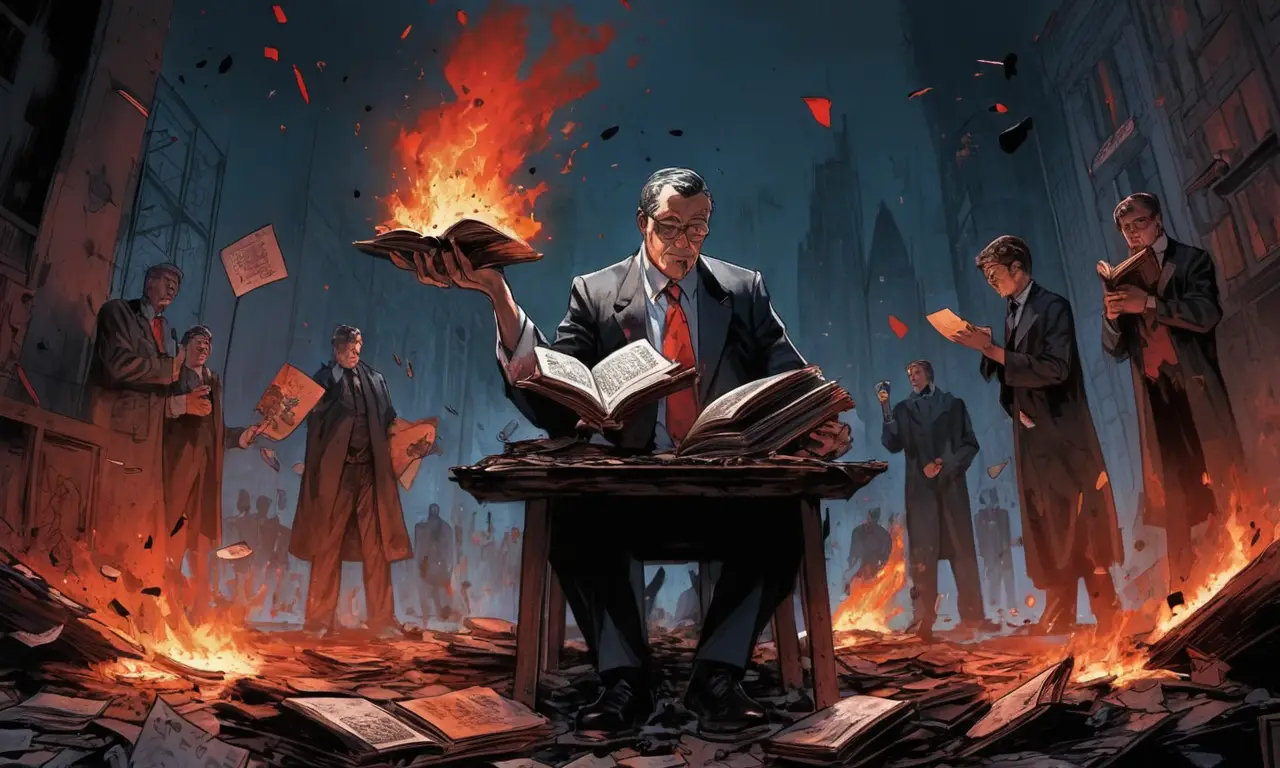George Orwell’s chilling dystopian novel “1984” paints a bleak picture of a future dominated by an oppressive totalitarian regime. The book explores themes of surveillance, propaganda, and the suppression of individual thought, leaving readers with a sense of unease and questioning the very nature of freedom. While “1984” has become a literary classic, its controversial subject matter led to temporary bans in some US schools and libraries during the late 20th century. This article delves into the reasons behind why was 1984 banned in the us, examining the book’s impact on society and its enduring legacy as a cautionary tale about the dangers of totalitarianism.
This article will explore the context surrounding “1984,” analyze its key themes, discuss the controversy it generated, and ultimately assess its lasting influence on literature and culture.
George Orwell’s “1984”
Published in 1949, “1984” is a product of its time, reflecting the anxieties and fears prevalent in the aftermath of World War II. George Orwell, a socialist writer and journalist, was deeply concerned about the rise of totalitarian regimes in Europe, particularly Nazi Germany and Stalinist Russia. He used his novel to warn against the dangers of unchecked power, mass surveillance, and the manipulation of truth.
The story follows Winston Smith, a low-ranking member of the ruling Party in Oceania, a superstate where every aspect of life is controlled by Big Brother, an omnipresent figurehead. Winston rebels against the Party’s oppressive regime, seeking solace in forbidden love and a clandestine rebellion. However, his actions are ultimately futile as he is captured and subjected to brutal torture and re-education.
Dystopian Fiction

“1984” is considered a seminal work of dystopian fiction, a genre that explores imagined societies characterized by oppression, control, and the suppression of individual freedoms. Dystopian novels often serve as cautionary tales, warning readers about the potential consequences of unchecked power, technological advancements, or social trends.
The novel’s bleak setting, oppressive atmosphere, and chilling portrayal of totalitarian rule have made it a timeless classic. Its themes resonate with contemporary audiences who grapple with issues such as surveillance, privacy, and the manipulation of information in the digital age.
Totalitarianism and Surveillance
One of the most prominent themes in “1984” is the concept of totalitarianism, a form of government characterized by absolute control over all aspects of life. The Party in Oceania exerts its power through constant surveillance, propaganda, and the suppression of dissent.
The novel’s depiction of surveillance is particularly chilling. Telescreens monitor citizens’ every move, while Thought Police infiltrate society to detect any signs of rebellion or unorthodox thinking. This pervasive surveillance creates a climate of fear and paranoia, where individuals are constantly afraid of being watched and punished for their thoughts.
Censorship and Controversy

“1984” has faced controversy and censorship throughout its history due to its challenging themes and graphic depictions of violence and torture. Some critics argued that the book’s content was too disturbing for young readers or could potentially incite rebellion against authority.
In the United States, “1984” was temporarily banned in some schools and libraries during the late 20th century. These bans were often driven by concerns about the novel’s potential to influence students’ political views or promote subversive ideas. However, these bans ultimately proved unsuccessful, as the book continued to circulate widely and gain recognition as a literary masterpiece.
Literary Legacy
Despite the controversy surrounding it, “1984” has become a cornerstone of modern literature. Its themes continue to resonate with readers today, serving as a reminder of the importance of individual freedom, critical thinking, and resistance against oppression.
The novel’s influence extends beyond literature, permeating popular culture through film adaptations, television shows, and even everyday language. Terms such as “Big Brother” and “doublethink” have entered the lexicon, reflecting the enduring impact of Orwell’s work on our understanding of power, control, and the human condition.
Conclusion
George Orwell’s “1984” remains a powerful and relevant work of fiction that continues to challenge readers to confront the dangers of totalitarianism and the importance of safeguarding individual liberties. While its controversial themes led to temporary bans in some US schools and libraries, the novel ultimately triumphed as a literary masterpiece, leaving an indelible mark on our cultural landscape. Its enduring legacy serves as a constant reminder of the need to remain vigilant against the erosion of freedom and the dangers of unchecked power.



